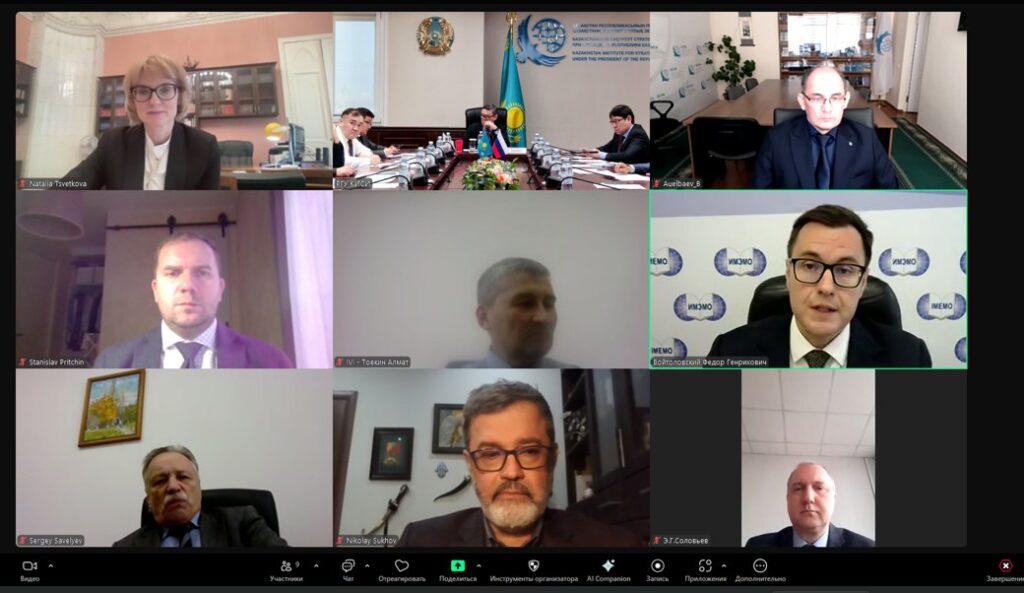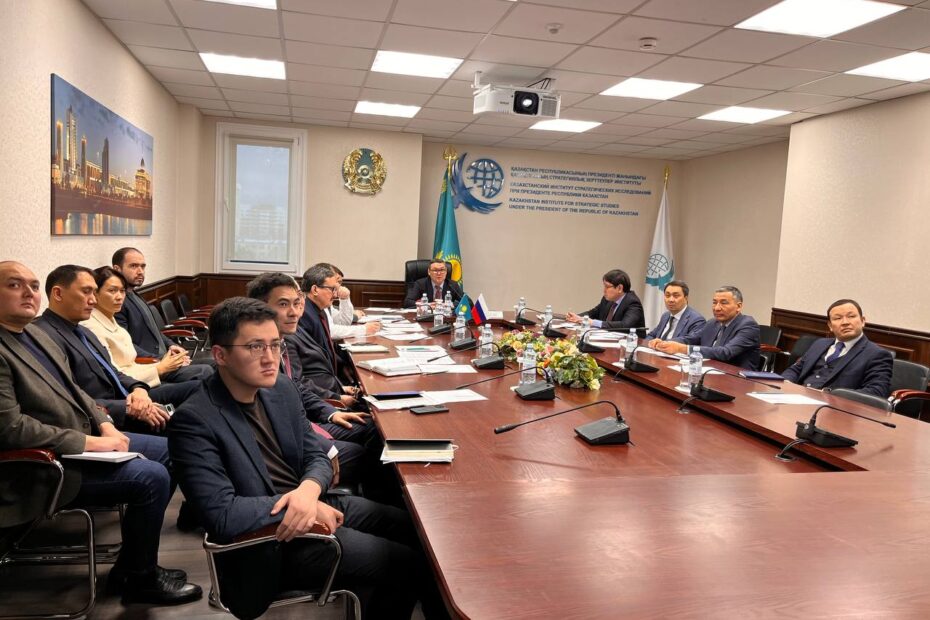The Kazakhstan Institute for Strategic Studies under the President of the Republic of Kazakhstan (KazISS) and the Institute of World Economy and International Relations of the Russian Academy of Sciences (IMEMO) held an expert meeting, where the two leading think tanks of Kazakhstan and Russia discussed the dynamics of bilateral cooperation and emphasized the need to deepen expert dialogue on key areas of the bilateral agenda. The meeting also featured an exchange of views on pressing issues of international and regional security.
Strategic Partnership as a Pillar of Stability
KazISS Director Yerkin Tukumov highlighted the positive dynamics of Kazakhstan-Russia relations, noting the regularity of meetings at various levels. He emphasized the steadfastness of the strategic partnership between Kazakhstan and Russia as a key factor for stability in the Eurasian region.
“In today’s conditions, it is crucial for us to carefully consider and respect each other’s interests. Mutual trust and respect for national interests, which form the foundation of our equal partnership, are gaining new significance,” Tukumov stated.
He also reminded attendees that 2025 marks the 20th anniversary of the Kazakhstan-Russia State Border Treaty, a significant milestone in the development of bilateral relations. Over the past two decades, the two nations have built a strong record of productive cooperation, largely due to regular political dialogue.
At this new stage of strategic relations, expert collaboration plays a crucial role, Tukumov stressed. He underscored the importance of intellectual diplomacy as a key mechanism in strengthening bilateral engagement.
The Role of “Middle Powers” in Global Politics
IMEMO RAS Director Fyodor Voitolovsky noted that as the global order undergoes transformation, “middle powers” are playing an increasingly significant role in international politics—a status Kazakhstan has firmly established.
Voitolovsky also emphasized that the existing communication between KazISS and IMEMO—both on a personal and institutional level—has proven to be an effective mechanism for strengthening various aspects of bilateral relations.
Expanding Intellectual Cooperation
Both sides reaffirmed their commitment to expanding expert collaboration, engaging a broader range of specialists and representatives from the academic and analytical communities in both countries. This intellectual exchange will help foster deeper understanding and enhance cooperation in key geopolitical and economic areas.



